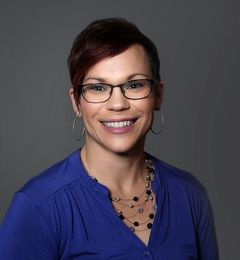|
Key Takeaways This wide-ranging and fascinating conversation explores our current understanding of longevity science, lifespan vs. healthspan and the role of exercise in aging. Longevity is a commonly seen buzzword on social media these days, so it’s important for health and exercise professionals to understand the science behind the term and be able to explain it to their clients. What factors have led to an extension of our lifespans and how are they related to long-term quality of life as we age? What can a person do to expand their longevity while being mindful of their quality of life? And, finally, what is the role of health and exercise professionals when it comes to longevity? Read on for some expert insight. |
One of the great privileges of working as a personal trainer is the opportunity to connect with incredible people from all walks of life. Throughout my career, I’ve been fortunate to work with clients who are not only successful but also smart, funny, and inspiring. Among them is Laura Carstensen, PhD, a psychology professor at Stanford University and the founding director of the Stanford Center on Longevity. Dr. Carstensen's research is globally respected, and she is a highly sought-after speaker in the field. I am truly grateful to count Laura as a friend, and I'm especially thrilled that she took the time to meet with me to discuss the topic of longevity.
It is so good to see you. Thank you for taking the time to talk to me today. You have been working to raise awareness of the impacts of increasing longevity of our population throughout your career. Recently, the term “longevity” is being used by people promoting so-called solutions to natural aging changes. Can you share your perspective on longevity?
Dr. Carstensen:
Well, first let me distinguish two terms, longevity and aging. Longevity simply refers to the length of something. You could talk about the longevity of a car, the longevity of a person, and it's the longevity of humans that has changed. So that's the big news. Aging refers to the process, the biological physical process that we don't understand fully at all. It is this process that changes our basic physiology and physical functioning. That's aging. Right now, the cause of aging in humans is theoretical. We don't know why humans age or what the underlying mechanisms are. There's a lot of exciting research right now where scientists are trying to understand just that—what changes people as we get older that changes our physiology and our health.
It's called geroscience, and the aim is to slow that process. So, if we can understand what it is, then we might be able to do something to curb it. So, the promise there is spectacular. Imagine getting older chronologically, but not changing biologically at the same time. So that said about aging, aging to our knowledge hasn't changed over many thousands of years.
So, the aging process hasn't been altered. What has been altered is longevity, and that has nothing to do with this kind of research. It has nothing to do with the supplement industry or really even healthcare. It has to do with the odds of making it to old age. We added, or I should say our ancestors added, 30 years to life expectancy in a single century. And they did it by investing in science that helped us understand how diseases came about and how they were spread. So, we were able, through community partnerships, to inoculate young kids against diseases they would never have to suffer.
Other things that don't get any credit are garbage collectors—the systematic disposal of waste. Once we understood how diseases were spread, we set up community-wide, systematic disposal of waste, garbage. And so that absolutely increased our health and the likelihood that we would survive. Agricultural technologies, for the first time in human history, began to provide a steady food supply throughout the year so that when fetuses were gestating, mothers could have proper nutrition throughout the term of pregnancy. So, now we can have better diets and nutrition throughout the year.
The other thing that changed was electrification. We discovered electricity and with electricity came refrigeration, which meant that every American household now could have refrigerators and take care of food. A hundred years ago, two of the top causes of death were the flu and food-borne illnesses because we couldn't care for food in a way that kept it safe. So, electricity, agricultural technology, sanitation and medicine all contributed. What came around the same time, in the early 20th century, is we put public education in place in every state in the nation. And today education is a better predictor of length and quality of life than any other variable.
That's the story of longevity. That's how we doubled the length of time that we live. It isn't… we exercise more, we take vitamin D… none of that. So, I think now when you look at the longevity businesses that are around, that's what they're around (supplements, etc.). And probably what people need to understand is there is very little, and for most of these products, any evidence that they would have a long-term effect on longevity. If people have a deficiency in a particular nutrient, it makes sense to supplement it. But the idea of people taking 50 to 60 supplements... all these people are espousing these things that in the best-case scenario may do no harm, but there's no evidence in the long run they're going to help you. But no doubt, in many cases they'll actually hurt you.
So, what is the best thing someone can do to impact longevity?
Dr. Carstensen:
The best thing we know now for health and longevity, for living a healthy long life, is to exercise. And I don't need to say that to you, but there's nothing better, nothing better. People will sometimes say to me, “What's the best thing people can do?” And then they say, “Maybe exercise?” And I say, “No, no. Only exercise!” Exercise affects every organ system, the brain, mood, bone density, your muscle strength, your heart—all of those things are affected by exercise. I had a conversation, a hallway conversation, about five years ago with a bunch of biologists who are trying to understand aging and doing research on trying to increase healthspan [i.e., the number of years a person can live without chronic or debilitating disease] and even lifespan, some of them. And I said, is there any possibility that the pathways through which exercise works will end up being the same pathways that you're going to end up zeroing in on that extend long and healthy life? And all of them said, absolutely. And in fact, they all expect that that's the best idea. So today, when people say, what's the best thing you can do, I even think in terms of the basic science of longevity, this geroscience today, none of those things are on the market. We don't have any idea if any of them will ever work. A lot of them work in mice, which is great for mice. It's not going to help humans. The best thing people can do is exercise.
That's wonderful. It's really, well, one, you have amazing friends that you can have that hallway conversation. That's so cool. And two, I think – what an interesting question that you asked about investigating the pathways of how exercise influences the body. And it's really fascinating to hear that that is the way people are thinking about it. From the perspective of, well, wait, we see this effect but, if this is the effect, what's causing it?
Dr. Carstensen:
Right. We don't know why exercise works either, but there are reasons to think it changes mitochondria.
Is longevity about the quality of life, quantity of life, or both? Can you elaborate?
Dr. Carstensen:
There's a lot of talk about longevity and living longer, and people want to live to 100 and 120 and 150. It's how healthy are we going to live? So (over the last century), we suddenly got 30 extra years, and what's happening now is, on average, about 10 of them are not in great health. So, we're living longer, our lifespan has increased, our longevity has increased, but our healthspan hasn't met that. And that's the aim of some of the most important research that's going on in science writ large. I mean, to the extent that we can understand, why it is we age, what are those changes, and then find ways to alter them either through behavioral practices like exercise or through some kind of a pharmacological supplement, we might be able to live healthier longer, and that would be fantastic.
I'm not waiting for the drug. And I think anybody who's over 50 today shouldn't be waiting for that drug. You can't really predict when science is going to have a breakthrough. What we do know is that there are brilliant people working on this problem, and there weren't any 25 years ago working on this problem. So that's exciting and it's promising, but at this point in time, don't wait for the pill and just exercise.
I love how you've made the distinction between aging, longevity, lifespan and healthspan. And I think that's so important for people to understand. And I think that's exactly what I was trying to get at, and I didn't have the vocabulary.
So, what are your thoughts on these practices that keep popping up as “longevity” practices?
Dr. Carstensen:
We just don't have the timeline to be able to make that kind of a claim. I think the one that most people would agree with is exercise. I mean, even if an ice bath might make you feel better the next day, is it going to make you live longer? These practices haven't been around long enough to know if it makes you live longer. So, I don't think there's much we know today that says, this is how you can live longer. But one of those things to me, I really value quality of life and there are things I do that are not good for health. I know they're not, but I like life better that way. But those are things I think individuals can make decisions for themselves. But if you're reading these books and saying, oh, I better do that and I better do this, and I don't eat enough carrots or I don't... just relax, chill.
You are touching on something so important, and I think it kind of goes to the last question I have for you. How can exercise professionals and health coaches best serve clients that are focused on longevity? And are there specific strategies you'd recommend? And I think that's a little bit what you're touching on right here. Do you want to elaborate on that a little bit and how you see it for those professionals?
Dr. Carstensen:
Yeah, I mean, I think it's pretty clear—very clear—that people need strength and they need to have cardiovascular integrity as they live. So those things are important. And I think beyond that, you have to know what it is people like to do and what they want to do, in terms of activities. If you want to go out on hikes, there are different things you need to do than if you care about that. I do care if I can walk three miles in a day. I do care if I can garden, if I can get up and down off the floor. So, it varies by person. I'd want to know what it is they want to do and then help them get there. And the same kind of reasoning for diet and other kinds of practices. If you absolutely hate tofu, don't eat it. There are other things you can do. If you love red meat, eat it. But eat it once a week. Experiment with things that'll get you a little bit healthier and don't make life miserable to the extent that we become unhappy because we're trying so hard to live long. I mean, it just doesn't make any sense. I don't even have to finish that sentence. It doesn't. It's illogical.
Final Thoughts
My key takeaway from my conversation with Dr. Carstensen is that while longevity and healthspan are being used interchangeably, they are not the same thing. Though our clients may come to us asking for longevity, what they are really seeking is a high quality of life for as long as possible. According to Dr. Carstensen, this is longevity and healthspan together. My second takeaway is that the process of aging is the reason we see this decrease in healthspan. I have to say that I agree with Dr. Carstensen, I’m not waiting for any pill. If strength training and cardiovascular exercise are the things that I can do to have a positive impact on my healthspan... well, I’ll keep doing that.
If you are interested in learning more about training older adults, including special considerations for this population and basic workout protocols, neuroplasticity strategies, reaction drills and circuit games, check out Active Aging: Your Guide to Training a Booming Population (worth 0.1 ACE CECs).




 by
by 










 by
by